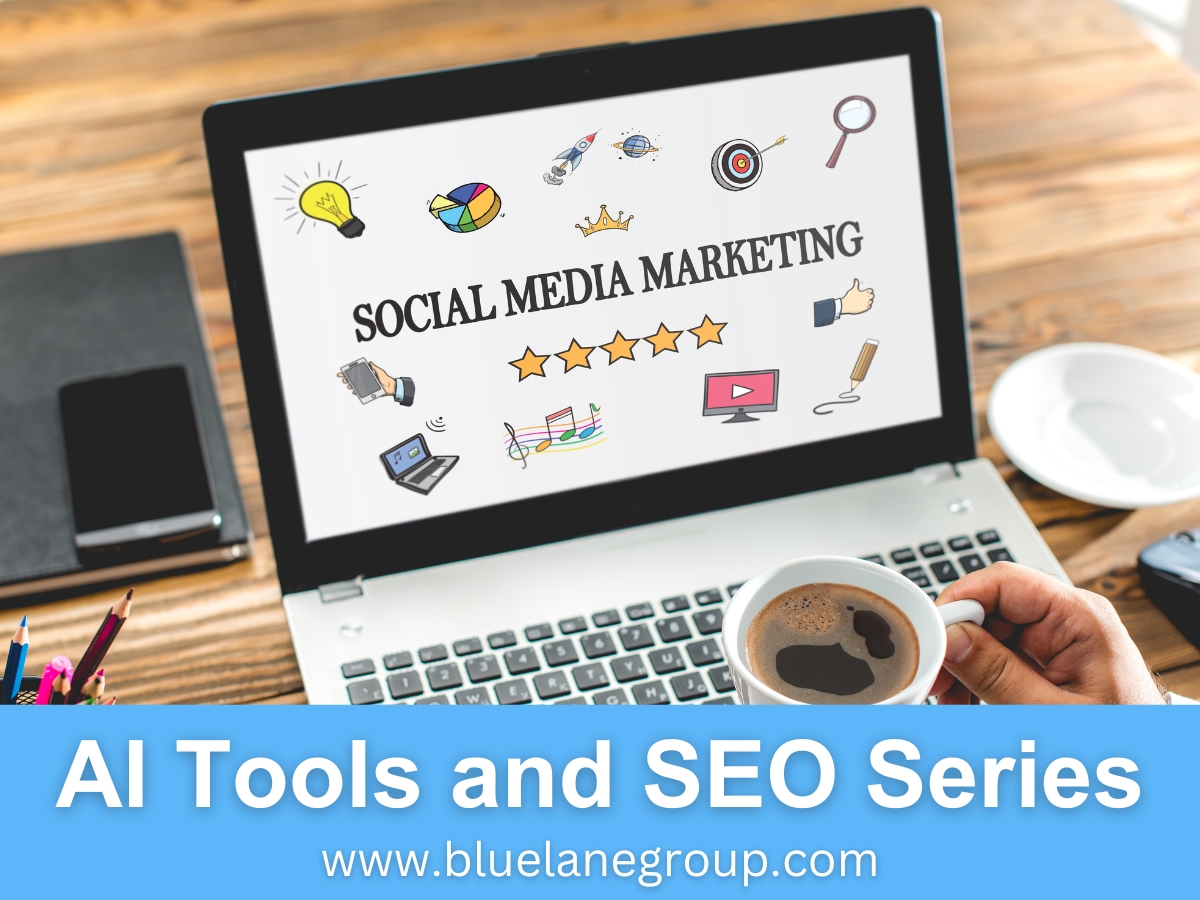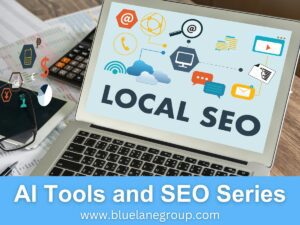Introduction: The Interplay of AI, Social Media, and SEO
In this enlightening article, we discuss the transformative role of AI in social media and how it’s revolutionizing SEO strategies. We’ll investigate its unique features, multiple benefits, and how leveraging AI can elevate your rankings on search engine result pages (SERPs).
Quick Insights – If Time Is of the Essence
- AI’s impact on social media and SEO is transformative. It allows for more intelligent targeting, real-time analytics, and efficient content optimization. These features help you engage with your audience more effectively and boost your search rankings simultaneously. AI is the tool if you’re looking to climb the SERPs while improving your social media presence.
- The power of AI extends beyond just automating routine tasks. It offers a dynamic way to interact with your audience, providing personalization at a scale previously unattainable. With AI, you’re not just keeping up with the competition but staying ahead. So, if you’re ready to elevate your rankings, it’s time to invest in AI for your social media and SEO strategies.
Welcome to the sixteenth article in the Blue Lane Group series on AI Tools and SEO: Building Tomorrow’s Search Strategies Today. This series examines how artificial intelligence is reshaping the field of search engine optimization, offering tools and strategies to boost website rankings, improve user engagement, and make content more relevant.

Disclosure: The digital products mentioned in this article are highly regarded in the marketplace and are endorsed by the Blue Lane Group staff. We may earn a commission at no additional cost if you purchase through the provided links.
Table of Contents

The Significance of Social Media Signals in SEO
Social media signals like likes, shares, and comments are increasingly important in SEO strategies. Search engines view these interactions as content quality and relevance indicators, thus impacting rankings. While social media platforms are not directly included in most search algorithms, the traffic and engagement they drive can make a considerable difference.
The synergistic relationship between social media and SEO can be incredibly potent when guided by Artificial Intelligence. AI can analyze vast amounts of data to identify the most effective strategies to boost social signals and, by extension, SEO.
Traditional vs. AI-Driven Social Media Signal Analysis
In the past, marketers relied on basic analytics and intuition to understand social media signals and their impact on SEO. Traditional tools often provided a limited scope of data that could be manually analyzed.
However, AI-driven platforms like BuzzSumo and Hootsuite have revolutionized this space. They offer deeper insights by processing complex datasets and identifying patterns that would be impossible or highly time-consuming for humans to detect.
What Sets AI-Driven Social Media Analysis Apart
AI-driven social media analysis excels in speed, scalability, and precision. Tools such as Sprout Social and SEMrush apply machine-learning algorithms to analyze user behavior and sentiment across social platforms.
This automated and in-depth analysis helps identify trends, optimize posts for better engagement, and boost SEO performance. Unlike traditional methods, AI can adapt to changing algorithms and user behaviors, offering a dynamic and more effective approach.

How AI in Social Media Signals Works
Understanding the mechanics of AI in social media signals involves recognizing how algorithms analyze data points from likes, shares, and even the sentiment in comments.
Platforms like Brandwatch focus on semantic analysis to gauge public opinion, which can be invaluable for SEO. By leveraging machine learning models, these AI tools can predict future trends and suggest content strategies more likely to generate high social engagement and SEO benefits.
The Algorithms Behind Social Media Signal Analysis
The core strength of AI-driven social media signal analysis lies in the complex algorithms it employs. These algorithms, often rooted in machine learning and data science, can be parsed through terabytes of social interactions, textual comments, and other forms of engagement.
They consider recency, relevance, and sentiment to create a comprehensive picture. Tools like DataRobot and Hootsuite employ these algorithms to offer valuable insights into social media signals’ nature and potential SEO impact. By doing so, they help businesses adapt their strategies more dynamically than traditional, less responsive methods.

Key Features in AI-Driven Social Media Signal Tools
AI-driven social media tools bring several groundbreaking features to the table. These include sentiment analysis, natural language processing, and trend prediction.
For instance, Sprinklr is designed to provide a unified view of various metrics across multiple social platforms, making it easier for marketers to interpret data. Google Analytics offers advanced integration features, allowing businesses to easily correlate their social media performance with their website’s SEO metrics.
Such rich feature sets give marketers the insights they need to develop more targeted and effective strategies.
Real-time Social Media Signal Monitoring
One of the most significant advantages of using AI-driven tools like Brandwatch and SEMrush is the ability to monitor social media signals in real time. This is invaluable for SEO as it allows for immediate adjustments to strategies based on current trends and public sentiment.
For example, if a particular type of content generates a lot of buzz, businesses can quickly capitalize on this by producing similar content, thus improving their SEO rankings. Real-time monitoring also provides the advantage of crisis management, allowing companies to address negative sentiment before adversely impacting their online reputation and SEO.
Predictive Analysis in Social Media Signals
Predictive analytics is another area where AI excels. Tools like DataRobot and Looker use historical data and machine learning algorithms to forecast future trends in social engagement and their potential SEO impacts.
They can predict how specific strategies, like certain types of posts or campaigns, will affect future engagement metrics and SEO rankings. This foresight allows businesses to allocate resources more efficiently, ensuring they focus on strategies that will likely yield the best ROI.

Case Studies: Success Stories of AI in Social Media and SEO
Several companies have already harnessed the power of AI in social media to boost their SEO rankings successfully. BuzzSumo and Hootsuite have provided invaluable insights to businesses that led to more effective keyword targeting and improved content strategies.
Case studies have shown an increase in organic traffic by as much as 30% in just a few months. These success stories provide compelling evidence of the significant ROI that can be achieved when combining AI in social media with SEO strategies.
Boosting Search Rankings Through AI-Driven Social Media Analysis
AI-driven social media tools like Looker and Sprinklr have proven incredibly effective in boosting search rankings. They do this by providing comprehensive analytics that helps businesses understand what content resonates with their audience.
This enables more effective content planning and keyword targeting. Companies can create a more compelling online presence by focusing on high-performing topics and themes, leading to higher SEO rankings.
Maximizing Engagement and Traffic Through AI
Optimizing for engagement is a crucial SEO strategy, and this is where AI in social media shines. Tools like Brandwatch and BuzzSumo offer sophisticated engagement metrics, from sentiment analysis to engagement rates by post type.
By understanding what content garners the most engagement, businesses can craft more of such content to maximize both social media traction and organic search traffic. This alignment between social media performance and SEO metrics often results in a synergistic effect, boosting both simultaneously.

Challenges in Utilizing AI for Social Media Signals
While AI offers many benefits, there are also challenges to consider. One significant issue is data privacy, as collecting and analyzing social media data often involves handling sensitive user information.
Additionally, AI algorithms can sometimes yield false positives or negatives in sentiment analysis or trend prediction, leading to less-than-optimal strategic decisions.
Tools like Google Analytics and SEMrush are working on refining their algorithms to minimize such issues, but it remains an area where caution is advised.
Data Privacy Concerns in Social Media Signals
Data privacy becomes a significant concern when utilizing AI in social media for SEO. Social media platforms house a tremendous amount of personal data, and tools like Brandwatch and Looker must tread carefully to ensure compliance with regulations such as GDPR and CCPA.
Even more sophisticated tools like Sprinklr continuously update their protocols to safeguard user data. Businesses must be fully aware of the data they collect and how it’s used to avoid legal issues.
Furthermore, customers are increasingly concerned about how their data is used, so transparency is crucial. This complex challenge cannot be ignored in any robust AI-driven social media signal analysis strategy.
Scalability Challenges in Social Media Signal Analysis
Scaling AI-driven analytics tools can be complex and require a significant investment. Both in terms of time and money. While platforms like Hootsuite and SEMrush offer scalable solutions, companies may find that as they grow, so do their analytical needs.
The computational power needed for large-scale data analysis can be costly. The human expertise required to interpret this data effectively can also be a limiting factor. Companies need to consider both these aspects when planning to scale their operations.

Future Trends in AI-Driven Social Media Signal Analysis
The future of AI in social media signal analysis is promising, with several emerging trends that could revolutionize how businesses approach SEO. Real-time research and predictive analytics are becoming more refined, aided by machine learning algorithms.
Tools like Google Analytics will likely incorporate more AI features, offering in-depth insights. Additionally, integrating natural language processing can provide more nuanced sentiment analysis, enhancing the quality of the senses. As AI technology evolves, we expect more intuitive, automated, and insightful tools to make social media signal analysis more accurate and actionable.
How to Choose the Right Tools for AI in Social Media Signals
Choosing the right AI tools for social media signal analysis is crucial for an effective SEO strategy. It’s not a one-size-fits-all scenario; what works for one business may not work for another. Factors to consider include ease of use, scalability, and the types of analytics offered.
For instance, BuzzSumo excels in content analysis, while Sprinklr is excellent for customer engagement metrics. Companies should also consider the immediate and long-term costs, as some tools like Looker might offer overkill features for smaller operations.
Finally, customer support and community reviews can provide invaluable insights into a tool’s efficacy and reliability.

FAQ: Your Top Questions on AI in Social Media Signals Answered
In this section, we tackle your most pressing queries about the role and impact of AI in social media signal analysis. As we delve into the complexities of this rapidly advancing technology, we aim to offer you a comprehensive understanding of how AI can enhance, or in some cases complicate, your SEO and broader digital marketing strategies.
Whether you’re a seasoned marketer or a beginner looking to leverage AI, these frequently asked questions and their corresponding answers aim to guide you through the various aspects of AI in social media signal analysis. The technology continues to advance at an incredible rate, making it more critical than ever to grasp its capabilities, limitations, and how it can serve or challenge existing SEO frameworks.
Why is AI Essential in Social Media Signal Analysis?
AI is increasingly becoming essential in social media signal analysis because it can process and interpret massive amounts of data quickly and accurately. With tools like Brandwatch and SEMrush, you can sift through real-time social media signals, identifying trends, consumer sentiments, and engagement metrics that can inform your SEO strategy.
AI algorithms can also anticipate user behavior and preferences, allowing for more targeted and effective campaigns. The complexity and volume of data are such that manual analysis would be prohibitively time-consuming and less accurate.

What Makes AI-Driven Social Media Signal Tools Unique?
AI-driven tools for social media signal analysis offer unique advantages over traditional methods. They can quickly adapt to changes in data trends, providing real-time actionable insights.
With machine learning algorithms, tools like Hootsuite and BuzzSumo can continuously improve their predictive and analytical capabilities the more data they process. This means you’re not just getting a snapshot of your social media landscape but an evolving, increasingly accurate picture.
The best influencer tools powered by AI also offer features like sentiment analysis and advanced content filtering, making them exceptionally versatile.
How Does AI Address Data Privacy in Social Media Signals?
Data privacy is a growing concern, and AI-driven social media signal tools are taking steps to address this issue. For example, Sprinklr ensures GDPR and CCPA compliance by anonymizing collected data and strictly adhering to data storage regulations.
These tools often include customizable privacy settings, allowing businesses to choose what data they collect and how they use it. Also, more advanced tools incorporate features that notify users about the managed data types, offering more transparency and control.

Conclusion: The Future of AI in Social Media and SEO
Integrating AI in social media and SEO strategies is not just a passing trend; it’s a transformative shift redefining how businesses and marketers approach digital visibility. With the ability to analyze massive datasets in real-time and provide actionable insights, AI offers unprecedented accuracy and efficiency.
Yet, it’s essential to remember that while AI can dramatically enhance social signal analysis and SEO, it also introduces new complexities, such as data privacy and scalability challenges. As we look towards the future, it’s clear that AI will continue to evolve, as will its role in social media and SEO.
Businesses that can adapt and innovate in this dynamic landscape will undoubtedly reap the benefits, from increased traffic and engagement to improved search rankings and ROI.

You Might Also Like:
If you enjoyed this article and received value from it, check out the other Blue Lane Group articles in the AI Tools and SEO: Building Tomorrow’s Search Strategies Today series:
- Uncover Hidden Opportunities: AI in User Behavior Analytics Tools
- Elevate Your Strategy: The Importance of SEO Optimization
- The Role of AI in SERP Analysis: A Revolutionary Approach
- Transform User Experience: Content Personalization with AI
- Boost Your Site’s Performance: AI in Technical SEO Audits
- Outsmart Your Rivals: AI in Competitive SEO Analysis
- Transform Your Content Strategy: AI-Driven Content Generation Revealed
- AI Link Building: The Secret to Unbeatable SEO
- Breakthrough Technology: Using AI for Image and Video SEO
- Drive More Traffic: Leveraging AI SEO Mobile Strategy
- Drive Engagement: How Sentiment AI Analysis for SEO Works
- Maximize ROI: Using an AI-Driven SEO Dashboard and Reporting Effectively
- Thrive Locally: AI Local SEO Tools You Can’t Ignore
- Ignite Sales: Utilizing AI for PPC Campaigns Strategies
- Amplify Your Reach: The Best Influencer Tools Powered by AI
- Elevate Rankings: AI in Social Media and SEO Strategies
- Optimize Success: Understanding AI Semantic Search for SEO
- Unleash the Power: AI and SEO Strategies Using Machine Learning
- Optimize Conversions: AI and Search Intent Tactics





